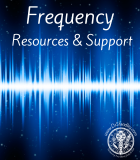
|

|
| Bach Flower Remedies |
Amino Acids A-Z |
Antioxidants A-Z |
Herbs A-Z |
Herbal Preps |
Minerals A-Z |
Vitamins A-Z |
|
|
 |
|
KELP (Fucus versiculosus)
DESCRIPTION: Kelp is one of the best known food sources for iodine. It is also high in calcium, silicon and sulphur. Kelp has nearly 30 minerals. It also contains the following minerals - iron, copper, chlorine, zinc, magnesium, phosphorus, potassium, sodium and manganese. In smaller amounts it has the minerals - aluminum, barium, bismuth, boron, chlorine, chromium, cobalt, gallium, lithium, nickel, silver, strontium, tin, titanium, vanadium and zirconium. Kelp is also rich in B-Complex vitamins and has Vitamins A, C, E, and K. It also contains lecithin. POTENTIAL BENEFITS: Kelp promotes good glandular health, regulates metabolism, helps in the digestion of food, helps to speed up metabolism and nourishes the body. Kelp aids in maintaining the central nervous system. It is also essential during pregnancy. POTENTIAL SIDE EFFECTS: Check with your doctor first if you are pregnant. PARTS USED: The whole plant GENERAL USAGE: Aids in adrenal function, cleans the arteries, asthma, colitis, skin complexion, constipation and other bowel difficulties, Diabetes, poor digestion, skin and nail problems, gallbladder dysfunction, flatulence, goiter, headaches, high blood pressure, kidney problems, morning sickness, nervous disorders, neuritis, obesity, pancreas disorders, pituitary gland stimulation, prostate strength, thyroid problems, uterine problems, sluggishness, lethargy, water retention, weight loss and wrinkles. DISCLAIMER **This web site's goal is to provide you with information that may be useful in attaining optimal health. Nothing in it is meant as a prescription or as medical advice. You should check with your physician before implementing any changes in your exercise or lifestyle habits, especially if you have physical problems or are taking medications of any kind. |
| 314.420.5099 |
| Questions regarding this site: webmaster@drstandley.com |
| Copyright 1999-2026: Dr. Loretta J. Standley - All Rights Reserved. |































